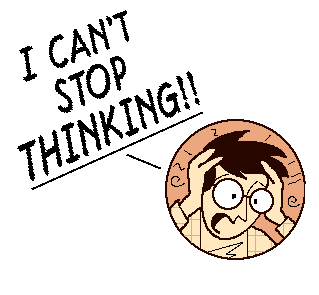It must be mentioned to my most assured discredit that I am not a parent. I realize fully that a brief stint of binge watching the British reality television series SuperNanny does not grant me permission to teach parents about what they are doing wrong. My experience and perspective are from the outside as a teacher and administrator of children's extracurricular activities, and before that as a babysitter. This is where I first began my novice observation of different parenting styles and how it affected the children, For me, "Childolotry " and A Nation of Wimps were the first explanations I read describing behavior and patterns that I have been observing for several years: unhappy marriages, tired parents of unmanageable children, high anxiety levels and unrealistic goals, but also examples of happy homes and families, developmentally healthy children, and adults who, while devoted and loving, take time as couples or even as singles to do things they enjoy.
A Nation of Wimps confirmed what I believed already: that over-parenting is something of an epidemic particularly among the most affluent, and left unchecked results in the opposite of the goal of parenting: weak-minded, anxiety-ridden adolescents (I leave it here because by definition, adolescence only ends when a defined sense of self is achieved: article coming soon "Quarter life crisis") These parents, I realized, are not evil or malicious, or abusive because they despise their children (although I would characterize some of their behavior as emotionally or psychologically abusive), they are driven by fear and a low or nonexistent sense of self. How can they allow their children to develop a self when the parents are still struggling to find their own?
The happy families that I know, while very, very different in their structures and parenting choices, all have one thing in common: the adults exercise the virtue of self-care, both for themselves individually and for their relationships. They make choices and do things for the relationship, and for the family, and for the children, and for themselves. And by the way, I don't mean the desperate and questionable examples of "ladies night" and "guys night,"which are escapism at best, desperation at worst and leave the individuals empty and less capable as contributing members of their families.
Disjointed thoughts on the book:
Effective teachers and mentors should relieve the psychological burden on parents feeling that they alone are competent enough and/or care enough to parent and protect their children. It is important that parents know that I, as the teacher of their child, am also invested what kind of person their child turns out to be, not just how far their can turn out their feet, or how quickly they progress to learning Mozart sonatas. As teachers, we must recognize our role in this way and honor that, even if society doesn't, ours is one of the most important and influential in a child's life.
Ineffective teachers and school administrations that demand that parents be involved to the point of doing homework with their kids every night is contributing to parent obsessiveness, and as Ms. Estroff points out, is crippling the students, "...undermining a sense of self-efficacy while promoting self-preoccupation." (Estroff 6)
One question:
A Nation of Wimps appears to support an assumption held by both parents and children that parents have nothing to offer their children in terms of navigating the world because of the speed of technological advances. Therefore, invasive parenting is a byproduct of the intense anxiety caused by internal resistance to the reality of parental impotence. My questions: when did technology become the indicator of relevance? Has this always been the case and is this assumption truly valid?
I think it is valid only in as much as the definitions of one, education, and two, happiness, have been narrowed and shaved to fit a microbox of fear and consumerism. If technology and the consumption of that technology is to be the purpose and means by which we pursue "success" through which we gain "happiness" (whatever that means), then yes, parents as immigrants to the age of technology have little to offer their descendants is native citizens of this age.
So maybe it is not a question of parental relevance, but rather a question of whether the most commonly held belief system* is one that should be followed, and relevance in that system is not something to work towards.
*When I say belief system, I do not necessarily mean one that has been purposefully adopted.
When people fail to develop a personal ethic comprised of mature convictions centered and supported by a secure sense of self, they tend to default to the most commonly held ethical belief system. At present, that would be the consumer ethic.


No comments:
Post a Comment